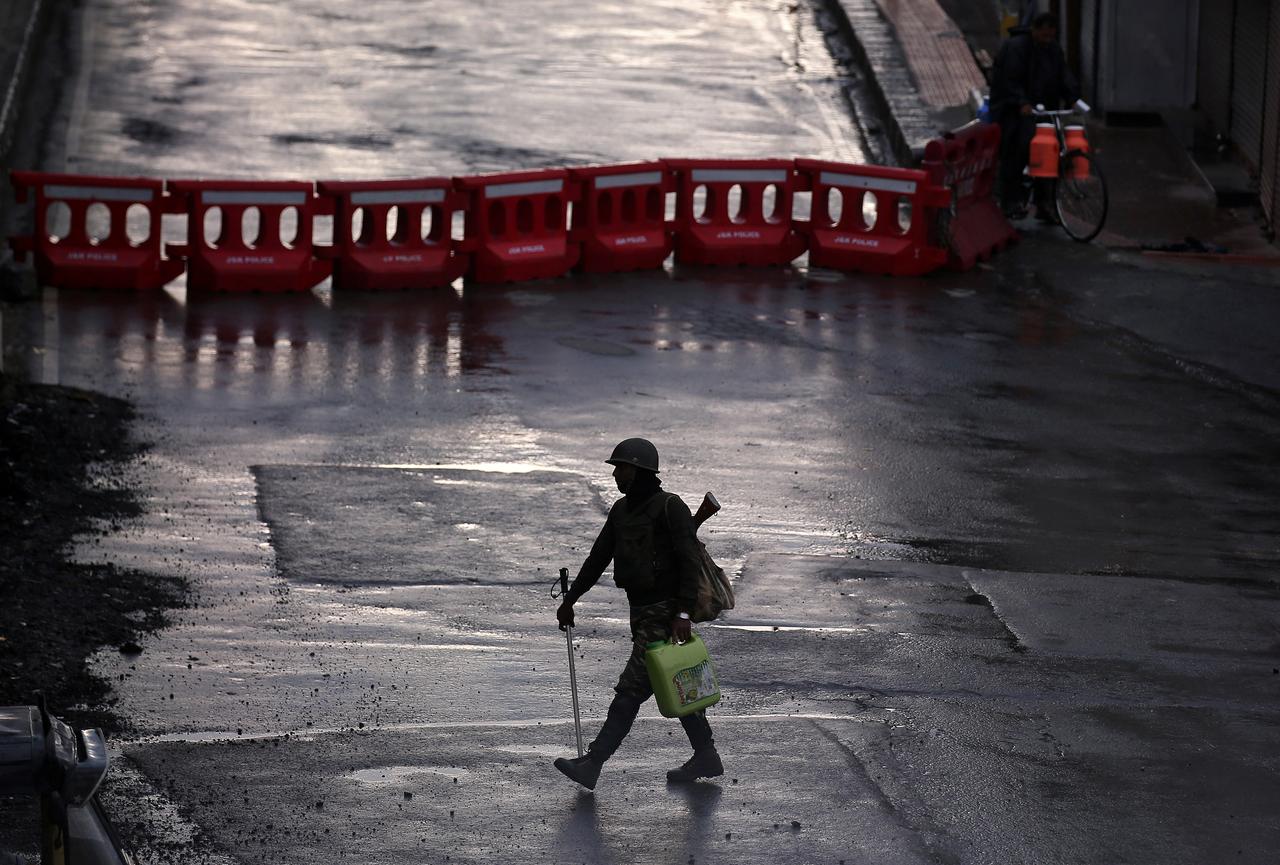I have a toothache and I’ve been putting up with it for some time now.
What if I get killed? A toothache, which may be an indication of sepsis, could be lethal. But I don’t think that would be a well-founded apprehension in the times of newfangled healthcare facilities. And also, my mouth has been impacted by a wisdom tooth; I just need an odontectomy at a dental clinic.
But venturing out, crossing barricades and checkpoints in order to reach said clinic is where I fear getting killed.
My forebodings, which have been there since as long as I can remember, became more haunting after a civilian, Peer Merajuddin, was killed near a checkpoint in Budgam.
He was killed because he “fled away from two naka points in suspicious conditions”.
At least that’s what the police said.
His uncle, an assistant sub inspector of police, who was in the car with Merajuddin, refuted the statement and called it a “complete lie”. He said that the car was stationary when a CRPF trooper opened fire.
Merajuddin’s father has called it “cold-blooded murder”.
Now, what’s the truth? Kashmir’s recent history of grave human rights violations committed at the hands of security forces might help us understand what to believe.
I have always feared being stopped at a checkpoint. A security man would be standing beside a barricade, waving his hand so aberrantly that the symbolic implication of his action cannot be understood.
Did he mean ‘go’? Or did he mean ‘stop’?
If you drive your car a bit further, the security man’s angry call to stop, sometimes followed by a swear towards your female relatives, clears the confusion.
I wonder, why are their signs so ambiguous, so vague – as though it is a deliberate gambit to push us into commiting a mistake. Why does it seem like they are waiting for us to make mistakes?
Getting around the main way to your destination with the intention of evading checkpoints doesn’t work. On every road, there are checkpoints and barricades laid in a zigzag fashion. Detours may not help you escape the intimidation and humiliation you feel when you are stopped at a checkpoint. And then, there are also surprise checks.
Also read: For Kashmiris in India, War is an Everyday Meal
You were travelling to a friend’s place in your car, cheerful over the mere thought of meeting him. You see security forces stop your car. You tremble. They were not supposed to be there. The first thought, in that distressing situation, is if you are carrying your identity card with you. You get no time to search your pockets before the security man comes along, poking his head through the window of the car.
He motions for your ID card and asks, “Kaha jaana hai?”
A small gasp of relief escapes you when you feel the laminated identity card in you pocket and think you’ve evaded a slap or a beating.
But you tremble while answering the questions.
“Kaanp kyun rahe ho? Gaadi mein hai kuch?” he asks. Your demeanour has now made him suspicious.
He may take pride in noticing your behavioural changes, thinking it may lead him to something, but you are shaking because you are afraid of him, of his gun, at the prospect of getting beaten, or worse, of getting killed. He then makes you open the trunk of your car. There’s nothing there.
You keep addressing him as ‘Sir! Sir!’. Being respectful might mitigate his wrath. As soon as you think that you would be allowed to leave, he asks for your phone.
A chill runs down your spine. “Had I deleted that photo of that rebel in my gallery, which had come attached with a news article on WhatsApp?” you wonder.
You obey. The security man scrolls down your whole photo gallery, looking at every personal photo, even the ones you had only kept for yourself – that you thought you would never share with anybody. Finally, he hands back your phone and allows you to go.
Before the killing of Merajuddin, I would have left such a situation with a heavy sigh of relief. But from now on, I know I will look back fearfully every time I’m allowed to pass a checkpoint – looking to see if someone is pointing a gun at my back.
Regarding my toothache – the pain is not subsiding. I really don’t want my toothache to force me to drive through checkpoints.
What if I killed for my toothache?
Atta Ul Munim Zahid is a student of journalism at Boys Degree College, Anantnag.
Featured image credit: Reuters

